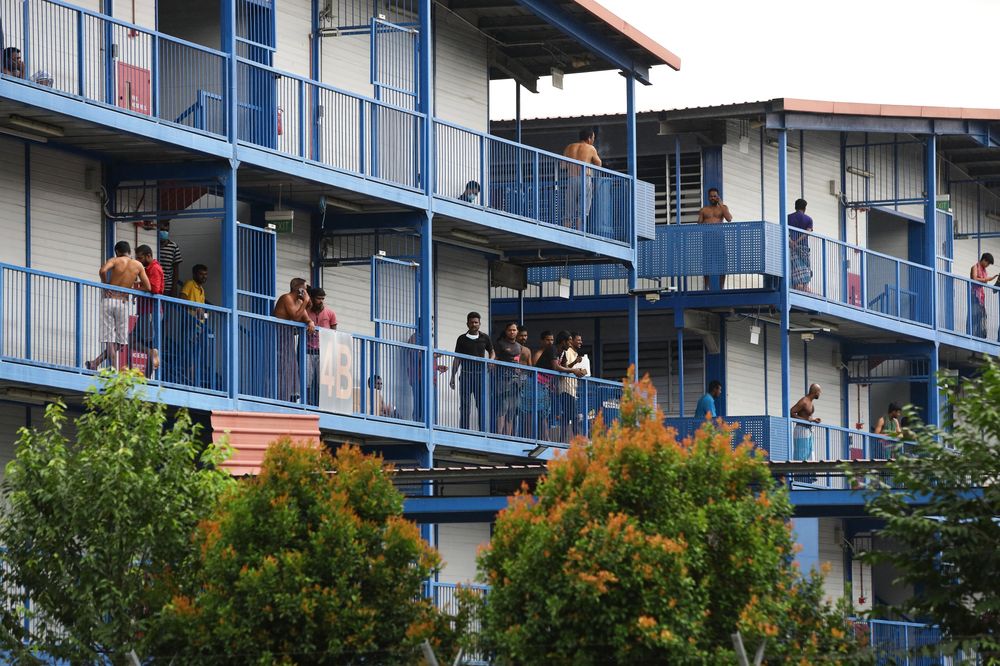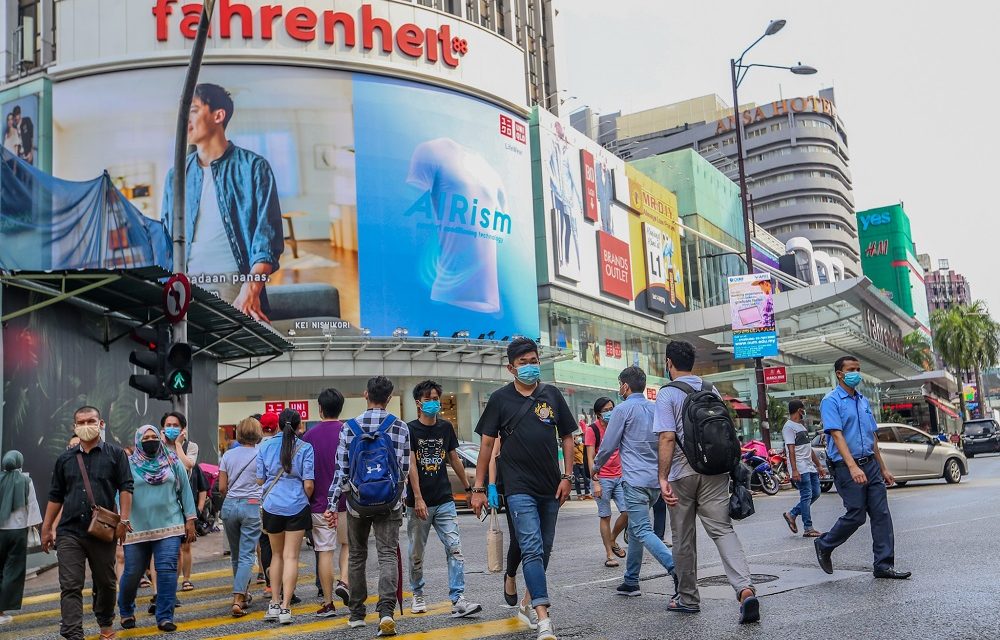Survey: With Covid-19 under control, Malaysians worried about unemployment, job safety
A recent survey has shown that Malaysians main concern now is job safety and unemployment as the Covid-19 virus is slowly held under control in the country. Global pollster Ipsos revealed that last month, 51% of Malaysians were concerned about the unemployment rate, compared to 43% in April and 42% in March. Concerns over Covid-19, which were at 85% in April 2020, went down 11% to 74% last month. Financial and political corruption was at the height of Malaysians concerns in March 2020 at 60% soon after the Perikatan Nasional government took office, but by May it was down to 39%. Unemployment has hit record levels in Malaysia as the Covid-19 pandemic wreaked havoc on the economy, causing businesses to shut down. The department of statistics released their own survey in which they said 50% of self- employed workers are out of work after the MCO was implemented. (Malay Mail)
Commercial property sector needs reinvention to survive impending recession
With prospects for commercial space appearing dim so long as Covid-19 pandemic is unresolved, property experts said diversification and creative solutions were needed for the sector to remain viable. Both the office and shopping retail spaces were already in oversupply even before the health and economic crises hit, with the National Property Information Centre (NAPIC) reporting an excess of 24.7% in commercial property space last year. Knight Frank Malaysia Corporate Services executive director Teh Young Khean said it would take some time for the retail and office space property sector to recover. Leasing activity has slowed immensely since the start of the MCO as real estate plans have either been delayed or cancelled altogether as businesses rapidly moved to cut costs and preserve their cash flow. “The demand for residential spaces will always be there and will continue to grow. So maybe the current retail and office space could evolve into a new form of living space,” said Property Hunter director Elson Kho. (Malay Mail)
No interstate travel allowed except for four reasons, police permission still needed
The government has reminded the public that interstate travel during the conditional movement control order (MCO) is not allowed, except for four reasons. Those who are facing emergency, attending to death in the family, for work and also couples living apart are allowed to travel interstate with police permission, says Senior Minister (Security) Datuk Seri Ismail Sabri Yaakob. He said the government has yet to decide if there will still be roadblocks after June 9, where the conditional MCO is expected to end. The Gerak Malaysia app is no longer applicable now due to the restriction on interstate travel set by the government. Those who have to travel and can meet the criteria set must get police permission by visiting the nearest headquarters. (The Star Online)
RINA Group to merge with Juwai IQI
Real estate agency RINA Group and its associates will merge into Juwai IQI, the owner of Juwai.com, Juwai.asia and IQI. In a joint statement, they said RINA and its associates’ more than 1,000 agents and negotiators will become members of IQI’s 9,000-person global team and will adopt the IQI brand. RINA and its associates make up Malaysia’s third-largest real estate agency group. Founded in 2010, it has seven offices throughout peninsular Malaysia and more than 1,000 agents and negotiators. RINA Group CEO Jordan Yeoh said by joining IQI, the group was giving its agents access to the Juwai IQI technology-enabled platform. He said technology is already playing a much bigger role in real estate because of the pandemic, and this role will grow quickly in the years to come. (NST Online)
Singapore rushes to build homes for 60,000 migrants after coronavirus outbreaks
The Singapore government is racing to create additional housing for about 60,000 migrant workers by the end of this year, as it seeks to reduce the density in dormitories which have seen mass outbreaks of the coronavirus infection. Singapore will create additional space through temporary structures that can be put together quickly in a modular form. It will also temporarily fit out unused state properties, such as former schools and vacant factories, the ministries of manpower and national development said on Monday. Over the longer term, it is planning to build new permanent dormitories to house up to 100,000 workers, which would take several years to complete. The first would be ready over the next one to two years. The government is also studying the possibility of building and leasing out these dormitories. Presently, commercial operators build and operate them. The nation of 5.7 million people has more than 35,000 cases, one of the largest numbers in Asia, largely due to infections in cramped, bunk-bed accommodation. (Reuters)






